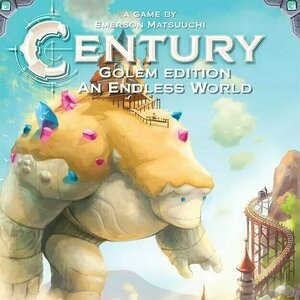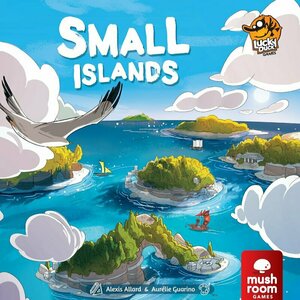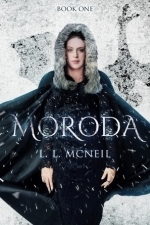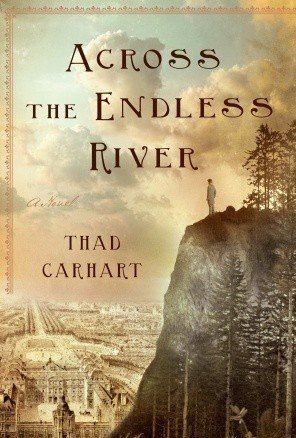
Across the Endless River
Book
From the acclaimed bestselling author of The Piano Shop on the Left Bank, a historical novel about...
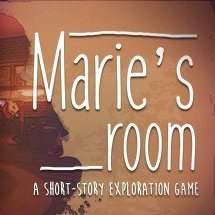
Marie's Room
Video Game Watch
Marie's Room is a short-story exploration game about an unconventional friendship between two...
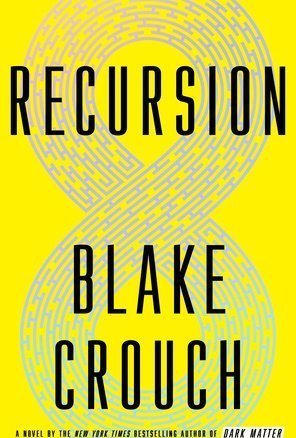
Recursion
Book
What if someone could rewrite your entire life? "My son has been erased." Those are the last...
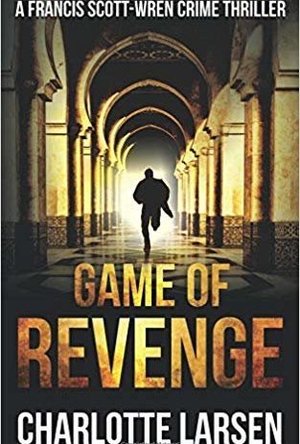
Game of Revenge (Francis Scott-Wren Series Book 2)
Book
“Before you embark on a journey of revenge, dig two graves” — Confucius Heart crushing...
crime thriller fiction Swedish series Game of Revenge
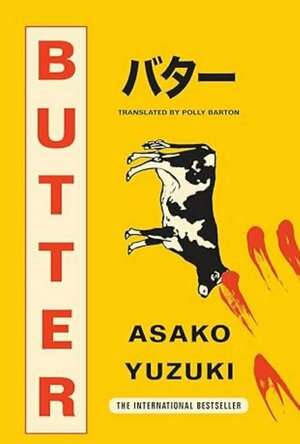
Butter
Book
The cult Japanese bestseller about a female gourmet cook and serial killer and the journalist intent...
Women in translation Japan
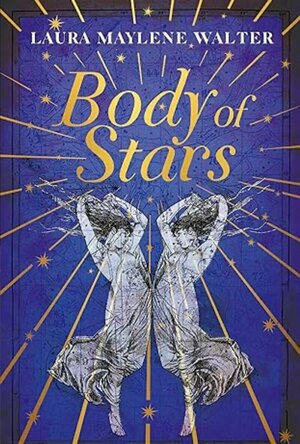
Body of Stars
Book
No future, dear reader, can break a woman on its own A bold and dazzling exploration of fate and...
Purple Phoenix Games (2266 KP) rated Abyss in Tabletop Games
Aug 5, 2021
Abyss is a push your luck, set collection, hand management, fantasy card drafting game for two to four players. In it players are attempting to gain the most Influence Points to rule the underwater kingdom by recruiting allies and Lords, and controlling locations. The game ends once a player recruits their seventh Lord or if the Lords cards run out before the Court can be refilled.
To setup, lay out the board, shuffle the Exploration cards (starfish backs) and place in the upper left corner. Shuffle the Lord cards (trident backs) and place the deck in the lower left corner. Reveal Lords to each of the spaces drawn to the right of the deck. This is the Court. Shuffle the Monster tokens and place in a messy pile near the board. Next to these place all the Key tokens. Display the Threat Tracker board with the Threat token on the first space. Shuffle the Location tiles into a stack and reveal the first one. Give each player a pearl in a shell cup and the game is ready to begin!
On a player’s turn they will follow the basic structure of Plotting at Court (by spending pearls to reveal more Lords), Taking One Action (by Exploring the Depths, Requesting Support from the Council, or Recruiting a Lord), and Controlling a Location.
Plotting at Court is simply paying pearls to reveal more Lords at Court.
The action choices begin with Exploring the Depths. This is the push your luck portion of the game where players will reveal cards from the top of the Exploration deck one by one, offer the card to their opponents for purchase (payable to the active player in pearls), and then deciding to continue or take into hand. These cards include members of five allied races of underwater species numbered in strength from one to five and monsters. Fighting monsters is an auto-win and the spoils are what is reflected on the Threat Tracker. If players decide to pass, they will move the Threat token down by one level and improve the treasure won when destroying a monster. Any allies that are undrafted will be sorted by family and placed on the appropriate space on the board.
To Request Support from the Council players will take the entire stack from one family on the board. Again, these are made up of the cards that were undrafted from previous Exploring the Depths actions.
Finally, Recruiting a Lord players will be spending their Exploration cards to combine strength values and family types to appease the Lords they wish to recruit. Players will analyze the strength needed on the bottom left of the Lord card along with the number and color of bubbles above the strength number to determine from which families cards will need to be paid. Lords will have special powers that can be used throughout the game until you use them to Control Locations.
Lords and monster tokens afford players keys, and once players accumulate three keys they MUST Control a Location. To Control a Location players will draft a face-up Location tile or draw one to four tiles and draft one of them. Also, players will sacrifice their Lords (and their special powers) to, well, lord over Locations as super powerful property managers. This is done by covering up the special Lord powers with the Location tiles.
Play continues in this fashion of quick turns until a player recruits their seventh Lord or if the Lords cards run out before the Court can be refilled during a Plot at Court action.
Components. As I mentioned in my open, Abyss boasts some of the most magnificent art ever to grace a board game. The aesthetic coupled with the theme makes for a gorgeous game on the table. The cardboard is all good quality and thick, the cards are good quality as well. The black plastic shells and pearls they hold are so nice to play with and I find myself rolling those pearls as fast as I can within the shells and inevitably spilling them everywhere.
The game play is also quite solid. I like drafting games quite a bit and this delivers a lot of drafting in different locations. You draft Exploration cards and Location tiles to beef up your mini empire. Using the Lords as special power cards but having to cover them up to help control a Location is a clever mechanic and helps with any sort of runaway leader issue. I did not touch on a couple rules because they can be a little confusing to new players (ie the affiliation of allies), but even new gamers can appreciate what Abyss does and how beautifully it accomplishes its task.
I cannot overstate how gorgeous this game is and how much I enjoy being able to pull it off the shelf and set it up to people who have never seen it. I mean, even just the box cover, which is a giant face and no text, is very impressive and helps set the tone for the dark but interesting experiences held within. Purple Phoenix Games gives Abyss a boding 14 / 18. Pick it up, post a picture of which box cover you received, and tag us in the post so we can compare.
Purple Phoenix Games (2266 KP) rated Century: Golem Edition - An Endless World in Tabletop Games
May 5, 2021
Disclaimer: This game comes with rules to incorporate any/all of the Century Golem games into one bigger game. In this review, I will only be discussing the stand-alone final game in the Century Golem trilogy. -L
Century: Golem Edition – An Endless World (referred to as just An Endless World for this review) is a game of set collection and worker placement in which players are trying to earn the most points by the end of the game. To setup the game, follow the instructions outlined in the rules, dependent upon your player count. Each player begins the game with 6 Trader meeples (or 7 in a 2-player game) in their supply, and a specified number/type of crystals. The game is now ready to begin!
On your turn, you will have 2 options: Work or Rest. To Work, you will first select a location square on the board. You may not choose a location where you already have Traders, or that has an Exploration tile. You will then place Traders from your supply onto the chosen location – the number of Traders required is printed on the location. If the location is unoccupied, simply place the required number of Traders. If the location is occupied by an opponent, you may place Traders there, but you must match the opponents Traders, plus an additional Trader, to take control of the location. Any opposing Traders ousted in this manner are returned to their players’ supply. Once you have placed Traders on a location, you can then perform the action listed on that location. Action options are: producing gems, upgrading gems, trading gems, or collecting Point cards/bonus tokens. If you cannot or do not want to use a location on your turn, you can Rest. To Rest, you will collect all of your Traders from the board and place them back into your supply.
Point cards can provide immediate, ongoing, or end-game benefits for players. Help cards allow you to place 1 fewer Trader than required on certain locations. Tool cards give players an additional gem of a specified color when they place Traders on corresponding locations. New Trader cards allow players to add either 1 or 2 more Traders to their supply, thus increasing their ability to play each ’round’ before needing to Rest. Finally, Exploration cards allow the player to select an Exploration token from the board. Any time an Exploration token is claimed, that location is now ‘uncovered’ and can be used for the remainder of the game. Bonus tokens grant end-game points based upon sets of icons collected, number of Traders in your supply, or simply straight-up points.
The game continues in this fashion, alternating turns, until a player has collected their 8th Point card. The current round is played out, and then points are counted. Points are earned through Point cards, bonus tiles, Exploration tiles, and any remaining gems in your supply. The player with the highest score wins!
One thing I really like about worker placement games is that the actual gameplay is pretty logical and straight-forward. Place your worker, perform action. And An Endless World is no exception to that. Of course, how you decide to play all comes down to your strategy, and again, An Endless World has tons of options for players. Maybe you want to just get 8 Point cards as quickly as possible and call it a day. Or perhaps you want to maximize your bonus tokens and eke out as many points from those as possible. Or maybe you even just want to keep your opponent(s) from achieving their goals. You can play this game so many different ways, and you can totally adapt and change strategy mid-game if you so choose. Each game feels unique and new, and I have yet to tire from this gameplay.
An Endless World is a worker placement game, but there is one factor that I find extremely unique for the mechanic. Usually, in worker placement games, once a worker has occupied a location, it remains there until the player chooses to recover their workers. An Endless World offers players the chance to oust opponents from locations, by placing the same number plus 1 additional worker. I just think this is super neat, because it means that you can’t just ‘block’ a location from everyone. If someone really wants that location, and they have the workers, they can get to that location. Also, along those lines, since ousting a player from a location means you have to match their workers plus an additional worker, you have to decide if you want to risk dedicating that many workers to a single location. You might reaaaaally want to perform that action, but for the cost of 4 Traders, is it worth it at this moment? Could those workers better be used on different locations and you just snatch your desired location on a future turn? All part of your strategy for the game, and definitely keeps all players engaged.
Let me touch on components for a minute. As with the other Century Golem games, An Endless World is extremely well-produced. The gems are the same quality, the cards are nice, thick, and clear to read, and the cardboard tokens are nice and sturdy. Plan B Games has hit the mark on this trilogy of games, and they truly are a pleasure to play. Obviously, the artwork and theme consistency throughout the Century Golem trilogy has been really satisfying, but that also carries over into the gameplay. All 3 games use much of the same iconography, so honestly learning An Endless World was super fast and easy for me. That uniformity is extremely user-friendly and is a huge plus for me.
So I guess you can see from my score and from reading this review that I am a huge fan of An Endless World. The final game of this trilogy is a home run for me, and I just keep thinking about what strategy I want to try in my next game. That in and of itself is an indication of a great game – thinking about it even when you’re not playing it! I have yet to try the variants that include the other 2 Century Golem games, and I am very much looking forward to integrating them all into one giant and (hopefully) awesome Century Golem saga. Purple Phoenix Games gives this one an expansive 16 / 18. Give it a shot, even if you haven’t played the other Century Golem games!
Purple Phoenix Games (2266 KP) rated Small Islands in Tabletop Games
Oct 13, 2021
Small Islands is a tile placement exploration game for one to four players. In it, players are explorers tasked with discovering resource-rich new islands upon which their clans may either exploit or inhabit. However, it’s each clan for themselves, and the players all need those precious resources. In the solo game, the player’s AI opponent is Alexis Allard, designer of the game. He has goal cards to be used and finishing point totals that the solo player will be attempting to beat during the course of the game.
DISCLAIMER: We were provided a copy of this game for the purposes of this review. This is a retail copy of the game, so what you see in these photos is exactly what would be received in your box. I do not intend to cover every single rule included in the rulebook, but will describe the overall game flow and major rule set so that our readers may get a sense of how the game plays. For more in depth rules, you may purchase a copy online or from your FLGS. -T
To setup, the player claims their player color and assigns Alexis with his color. They take all the components for each player and places them on the table. The starting tiles (that feature flying seagulls) are placed on the table in any orientation that is legal for play: islands need to connect, and seas need to flow from one tile to the next, as seen below. The Landscape tiles are to be shuffled and placed within reach. The four ship tiles are displayed, with all ships on their gray side, save for the solo player’s chosen color. The Navigation tile is placed below the ship tiles, and the beginning three Landscape tiles are placed in a row beside it. The small stack of Objective cards are shuffled and placed nearby, with the player drawing one to begin. They also draw two Landscape to start. For solo play, one Alexis difficulty card is chosen, and his deck of Explore and Land cards is built accordingly. The Prestige (VP) tokens are (apparently when I play) just thrown on the table and gathered in a loose pile. The game may now begin!
Small Islands is played over four rounds, with several turns being played per round. The solo player begins each round with their turn. A turn is divided into three phases: Preparation, Exploration, Reward. The Preparation phase has the player populating the Navigation Tile with six Landscape tiles face-down as a draw stack. The player then draws two Objective cards to add to their one they are currently holding. From these three cards the player will choose one to become their current objective for the round, one to be saved for a future round, and one to be discarded back to the stack. These Objective cards provide a strategy to guide the player through the current round, and also setup future rounds for scoring purposes. Upon them are icons that will award the player with points for scoring islands containing specific combinations of resources.
During the Exploration phase in the solo game, the player takes their turn first, and then Alexis will take his. A typical Exploration phase has a player deciding if they will Explore a tile or Land a ship. To Explore a tile, the player chooses one of the face-up Landscape tiles from the market/offer row and, along with their two held tiles, choose one to add to the play area. These tiles may be rotated in any fashion, as long as they can be legally placed: island edges are to be extended, sea spaces connected, et al. It is also at this time the player may place one of their Bonus Tokens upon any tile on the play area. These Bonus Tokens are resource icons that cover up existing icons on a tile, or directly over another Bonus Token. A player would do this in order to affect the balance of icons on a given island for scoring purposes.
Should the Navigation tile be empty of Landscape tiles and the player wish, they may instead Land a ship, thus ending the Exploration phase. The player chooses any of the ship tiles, and places it legally on the play area (in a sea space, as shown below). Once the player ends the phase, the game progresses to the Reward phase.
After the player takes their turn during the Exploration phase, Alexis takes his turn. This is done by drawing an Expedition card from his stack and following its instructions. The Expedition card will show whether Alexis would like to Explore or Land, which Landscape tile he would like to draw, and where he would like to place it – in relation to where the last player tile was placed.
During the Reward phase, the player will place any of their clan houseeples they wish on any island upon which they have not placed a houseeple previously. Then, consulting their Objective card, score points for successfully satisfying the card’s requirements. For Alexis, the player will draw a new Expedition card from Alexis’s stack, note the icons present on the Mission area of the card, and place Alexis houseeples upon islands that satisfy its requirements.
The game continues in this fashion until the fourth round is complete. The player totals their Prestige points (VP) and if they score more than Alexis, they win! The player must then take a picture of their archipelago they built and send it to the designer directly and gloat to them about their massive victory. Or simply rest in the satisfaction of having played the game well. Whichever.
Components. This game has a lot of components, and they are mostly cardboard and houseeples. The cardstock and board are good quality, as I have come to expect from Lucky Duck Games, and the houseeples are all different shapes for each clan color. I find that a nice and unnecessary, but very cool, touch. The art in this one is simply amazing. I mean, look at these photos! Everything from the color scheme to the art style all mesh well and give a well-considered polish to a great theme.
Okay, I won’t even hide it – I LOOOOOOVE this game. I never really liked Carcassonne very much, but Small Islands gives a similar feel, but executes everything so much better. Even with the solo rules. There are so many options available at any one time, and having a random Alexis game each time you play is just so satisfying. I feel like I could keep this game forever and not play the same game twice. Ever. And I think that I would WANT to play this one forever. Yes, I think this is a solid fit for my collection indeed, and I can see it working for so many different gamer types.
Having Alexis constantly applying the pressure to maximize and strategize every turn is delicious, and having almost zero conflict with him as we both explore is welcome. You know when you start the game how many points Alexis will score at the end of the game, so having that knowledge really makes you consider all the options available. It just works on so many levels.
If you are looking for a light-hearted, but with some great decisions to be made, then I strongly urge you to check out Small Islands. I knew immediately that this was a game for me. It’s on the lighter side without being too simple, I get to build a thing and admire it at the end of the game, and I have an opponent who just wants to see me win because he designed the game! I’m in and out in less than an hour and feel content that I was able to have a great experience with a well-designed game. I cannot wait to introduce this to all my friends and family gamers so they can fall in love with it as well.
Uptown Oracle (24 KP) rated Moroda in Books
Jun 30, 2017
One of my favourite parts of the book is that there's multiple wonderful characters. We have our main character, Moroda and her sister Eryn, two former Goldstones trying to survive after their fathers death. There's Morgen an Imperial Guard from Corhaven, who's unsure as to whether life in the Guard is for him. Amarah, a brusk sky pirate who cares more for money and treasure. Palom and Anahrik, two Ittallan traders who want to get back to their homeland before war hits. Sapora, a Varkain who also wants to return to his homeland, away from the prejudice against his kind. And Kohl, an exiled Arillian who can control wind and lightening. Groups are often used within the fantasy genre but Moroda doesn't confuse you with multitudes of characters.
The world of Linaria has different prejudices and stereotypes against races and the inclusion of these races allows to get a much better, unbiased opinion. Each of our characters has their own thoughts, motivations, backgrounds and histories. Despite preconceived views of each other, the characters are all individual. There's also strong character growth, especially for Moroda throughout the book. There was definitely the risk of falling into common female fantasy tropes with Moroda, but McNeil manages to miss each of these skillfully.
The only criticism is the antagonist, Aciel. Being told by other characters what Aciel was doing and how, is very different to be able to see it. There was a lost connection that I personally like having with the villains. We meet him and he does speak a little bit, but there's definitely that lack of attachment. This criticism is also very personal, as I know a lot of people wouldn't mind this at all.
As with any fantasy novel, you need a wonderful fantasy land. There's exploration of multiple cities, and also some comparisons by the characters themselves. Each place has it's own background and vivid descriptions. I'm really looking forward to more exploration of Sereth, the Varkain capital. There's also undertones of myth, lore and legend within Linaria. Which although not explored completely within this book will be fantastic to build upon in later books.
Moroda is romance free which I loved. I've read so many books recently where the romantic subplot overshadows the real plot, and this was so refreshing. The focus was on the friendships being made over the journey, and the sisterly bond between Moroda and Eryn.
Overall I loved Moroda. Perfect to go into reading more over summer as I've finally finished exams!

